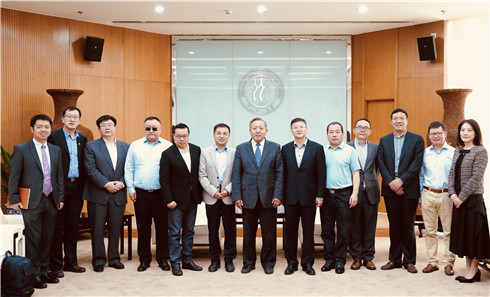 Research Update
Research Update
23
MayOn the morning of May 15, 2019, “Think-tank Construction and Strategic Communication in the era of Omnimedia” Roundtable Forum was held in Renmin University of China. About twenty scholars and experts from think tanks, academic community, the media, including Chinese Academy of Sciences, Counsellor’s Office of the State Council of the People’s Republic of China, Academy of Military Sciences PLA China, China Region Development & Reform Institute (CRDRI), Tsinghua University, Renmin University of China, Party School of the Central Committee of C.P.C Press, China Daily, Guangming Daily, China Internet Information Center (China.org.cn), ifeng.com, came together and exchange ideas on two topics of “How can Chinese think tanks promote innovative capability on ideas” and “How to do strategic communication by think tanks in the era of omnimedia”. This forum was organized by National Academy of Development and Strategy of Renmin University of China, supported by the School of Jouralism, RUC. Wu Xiaoqiu, Vice President of RUC, attended this forum and delivered the keynote speech, and Yan Jinming, Executive Dean of NADS presided over the forum.
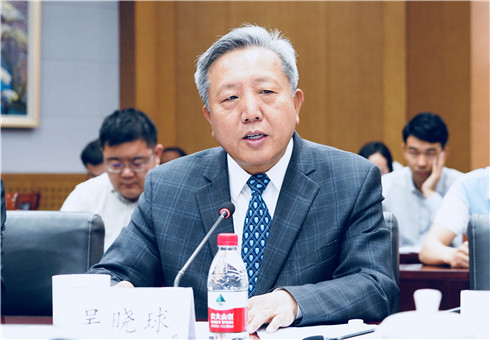
Wu Xiaoqiu, Vice President of Renmin University of China, pointed out in his speech that in the past 40 years of reform and opening up, China has developed into a country that is moving towards modernization, well-off, open-minded, and increasingly confident, from a poor, backward, and closed country. It is a miracle of human history. At present, we are in an era of great development, great changes and great adjustments. China is facing an unprecedented and extremely complex new situation and new tasks. For the contradictions and problems in the process of national development, think tanks and the media must stand at the height of history, the height of rejuvenation of the Chinese nation, and the height of China's contribution to human society, with objective and rational thinking, strive to enhance strategic thinking, dialectical thinking, and innovative thinking and strengthen macro thinking and top-level design. Wu Xiaoqiu stressed that we must actively implement Xi Jinping's new thinking of think-tank construction with Chinese characteristics, strengthen the ideological innovation and strategic communication power of the think tank, make the Chinese think tank truly become the core supporting force for the rise of the country's thought, and contribute China's wisdom and China plan for the development of all mankind.
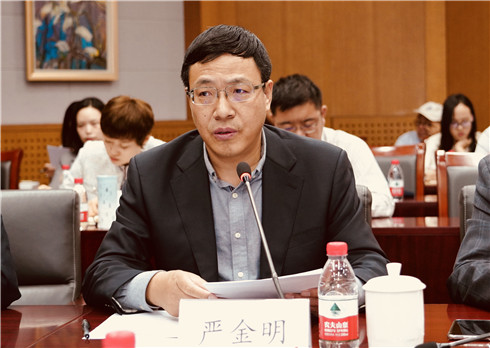
Yan Jinming, Executive Director of the NADS of Renmin University of China, said that in the modern history, the rise of any country must be accompanied by the rise of thought. For a socialist country like China that is exploring an unprecedented development path, the rise of thought is even more significant. The National Academy of Development and Strategy of Renmin University of China is an independent and non-profit research organization, built by integrating best research resources of RUC, guided by General Secretary Xi Jinping’s Thought on Governance, with the " Four-pronged Strategy" strategy as the research framework, the " Modernization of State Governance " as the featured research field. NADS RUC adheres to the goal of "National Strategy, Global Vision, Decision-making Consultation, Public Opinion Guidance", focusing on ideological innovation and global future, serving the country's development strategy and social progress.
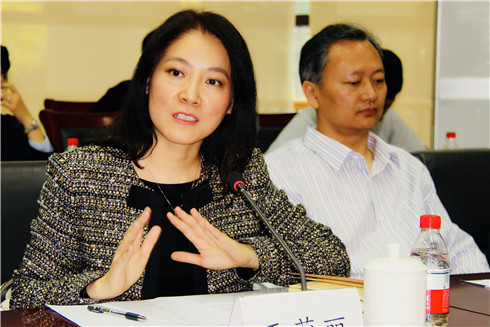
Wang Lili, Deputy Dean of the NADS of Renmin University of China, presided over the round-table discussion session of the forum. Wang Lili pointed out that as an institution engaged in public policy research and as a knowledge-intensive organization, the core function of the think-tank is to conduct policy and strategic research and to carry out effective strategic communication on the basis of ideological innovation. At present, China is in a critical period of world historical development. Standing at the key node of the great rejuvenation of the Chinese nation, think tanks play an extremely important role in national ideology building and global development strategies. Although the development of China's think tank has made great progress, it is still far from meeting the needs of international relations and national development strategies under the new situation. China's think tanks should continue to deepen reforms in a comprehensive manner, enhance the ability of thinking innovative through talents as the core, and improve the effectiveness of strategic communication by effectively using the media convergence.
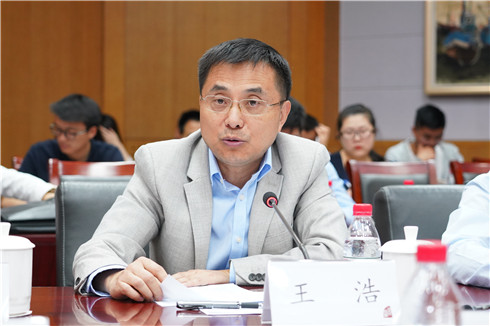
Wang Hao, Deputy Editor-in-chief of China Daily, said that the rapidly changing global background and national development blueprint are redefining the mission and responsibility of Chinese media and think tanks. Since the 18th National Congress, the Party Central Committee with General Secretary Xi Jinping as the core has attached great importance to the construction of think tanks, and has taken it as an important starting point for building ideological powers, enhancing China's value and international discourse power, thus pushing the construction of high-end think tanks into speed-up and fast lanes. In recent years, China's think tank construction has made great progress. But we must face a reality: Compared with the mission given by the state, our comprehensive ability is not enough. Both the Chinese media and think tanks need to be down-to-earth, push forward capacity building, form a governance level that matches our expected mission and role, cultivate talents, and enhance the ability to communicate with the international community on a large scale.
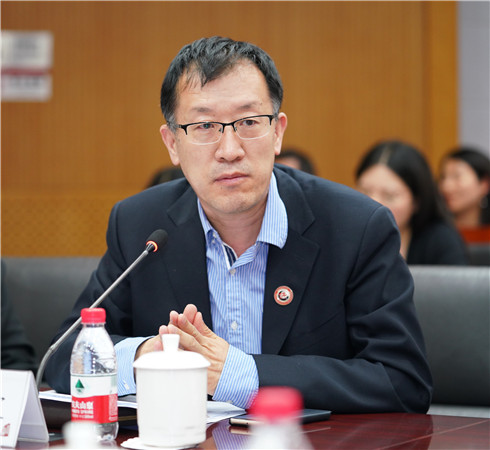
Jing Linbo, Dean of the China Society for Social Science Evaluation, believes that the current difficulties in China's think tank construction are mainly reflected in three dimensions: First, the conflict between the country's diversity needs of high-end think tanks and the single research field of think tanks; Second, the mismatch between ideological product output and emergency demand; Third, in the era of big data and artificial intelligence, the traditional research methods and measures of think tanks face enormous challenges and cannot keep up with demand. In addition, the four latitudes of think tank strategic communication, namely, decision-making influence, academic communication power, social communication power, and international communication power, are also facing unprecedented challenges and dilemmas.
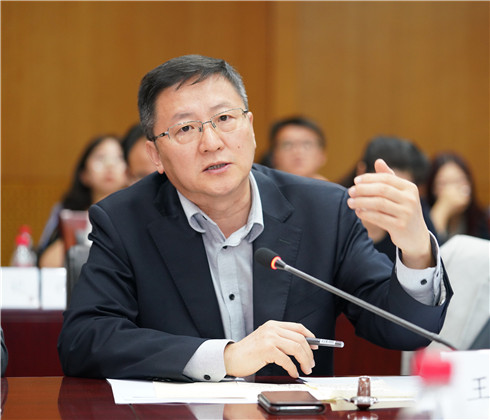
Wang Xiaohui, Editor-in-Chief of China.com, stressed that Chinese think tanks are currently facing a major issue in the construction of discourse systems. Building a discourse system with Chinese characteristics must be supported by strong economy, military capability, cultural and international influences. A weak country has no diplomacy, and a weak country does not have its own discourse system. With the discourse system, it needs the support of the think tank. The think tank is thought-provoking. If there is thought, there is content communication, and the thought is processed and produced on the basis of information acquisition and selection. In the era of the omnimedia, among too many choices, think tank scholars face the problem of how to choose information and de-noise.
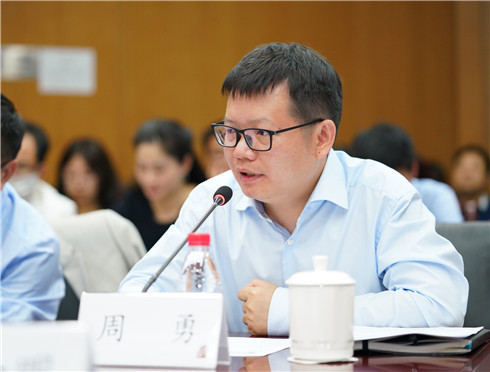
Zhou Yong, Secretary of the Party Committee and Deputy Dean of the School of Journalism at Renmin University of China, said that there is still much room for improvement in establishing a benign interaction between think tanks and the media. From the perspective of media communication, in the past 20 years, our external communication capacity building has made great progress, but the pattern of “strong West and weak East” on the international public opinion field has not fundamentally changed. The information dissemination of the Chinese media needs the support of ideas, which requires the Chinese think tanks to constantly propose innovative ideas and concepts, so that the media can have mind weapons in the international public opinion field and firmly lock the agenda of public opinion. In addition, the strategic communication of Chinese think tanks requires a group of high-quality communicators, who need to have the ability to communicate in the era of omnimedia, and who can understand the dissemination of policy research and strategic research ideas of think tanks. The RUC School of Journalism has made many attempts and efforts in the field of communication talent training in the new era.
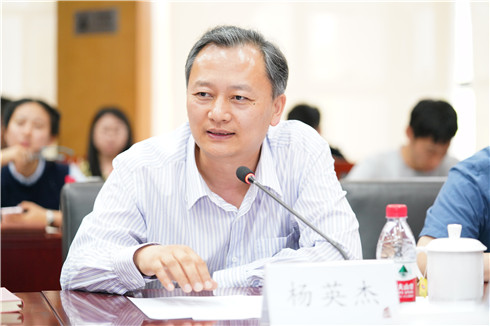
Yang Yingjie, Deputy Director of the Party School of the Central Committee of C.P.C Press, said that in the context of the current Sino-US trade conflict, Chinese think tanks and the media are facing great challenges. Our think tanks, scholars, and the media cannot be misled by others, and we must have our own innovations on ideas. In the strategic communication of think tanks, we must think about why the concepts we propose are not strongly responded and recognized internationally. This requires us to find a point of convergence and commonality with the international community in communication. We have to delve into what sounds are coming out and how to make a sound.
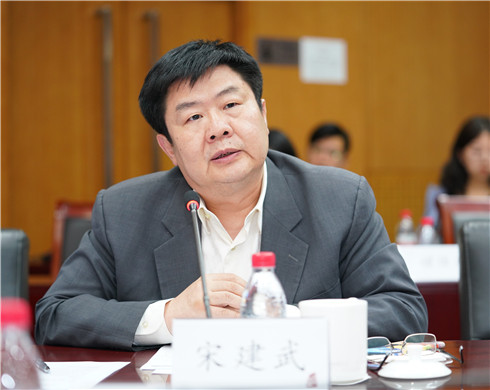
Song Jianwu, Professor of School of Journalism and Communication, Renmin University of China, pointed out that Chinese think tanks shall on one hand make analysis of the problems and issues encountered in the development of China, but come up with specific proposals and solutions on the other hand. As for the strategic communication, think tanks shall stick to its own goal, at the same time establish a series of supporting communication strategy and plans. New technologies and applications must be utilized by think tanks for further development and innovation, especially the big data. Chinese think tanks shall strive to build a database, which will be of great significance to interdisciplinary integration.
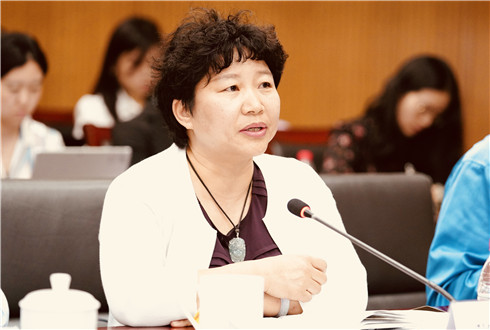
Zhang Liping, Deputy Director of Counsellors’ Office of the State Council, pointed out that in the era of omnimedia, we have to be more precise in communication in order to achieve desired effect while facing new requirements and challenges. Think tanks must clearly position themselves in their strategic communication so that they can better communicate with the media. For the construction of think tank in the all-media era, the priority is innovation. And the innovation of think tanks depends on free thinking and critical thinking, thus scholars, experts of think tanks must do their research and analysis professionally with logic and rationality. In addition, the innovation of ideas requires us to foster more talents with multidisciplinary background.
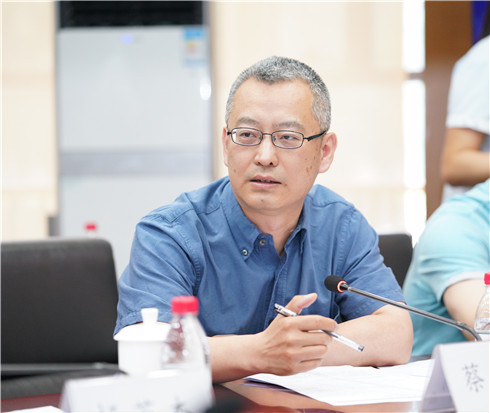
Cai Chuang, Director of Editorial Department of Guangming Daily, said that in the age of omnimedia, information dissemination becomes easy, thus there are too much information on the internet. What journalists lack is not make more news but a return to the true journalism as it should be. Think tanks and the media shall work closely together as the media needs think tank’s research and ideas, and think tanks need the media to promote its opinions. President Xi urged the journalists to build up their vision, brain power and writing skills based on field visits, and a closer cooperation with think tank will be a shortcut for the media to achieve it.
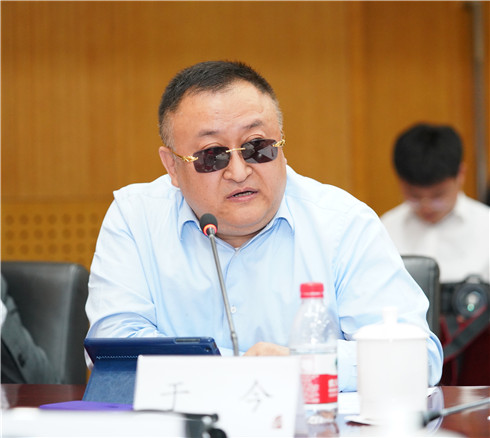
Yu Jin, President of China Region Development & Reform Institute, believed that the innovation of think tanks could be further promoted by focusing more on independent research and studies and attracting more high-level social talents. Strategically speaking, think tanks should have a sense of national security in their communication. Specifically, think tank in their construction shall build a comprehensive all-media communication platform, increase exchanges and idea-sharing between think tanks. Meanwhile, international exchanges should be encouraged so that the international community could have a better understanding of Chinese wisdom, ideas and initiatives in the new era, and Chinese think tanks would have more influence and voice at the world stage.
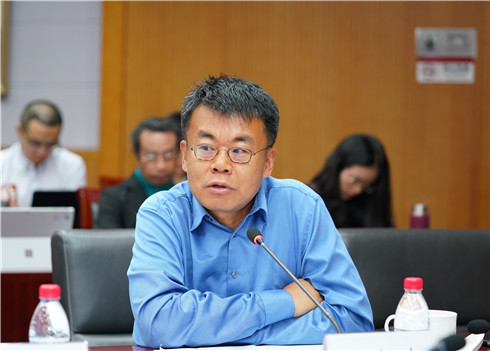
Shi Anbin, Vice President of School of Journalism and Communication, Tsinghua University, said that Chinese think tanks could strengthen their all-media construction by creating high profile brand and key opinion leaders, helping the public to improve their cognitive performance, and playing the leading role of discourse. In the current context, our communication must avoid double talking and blindly following the herd. Think tanks should instead improve their communication with the help of media-based thinking and method.
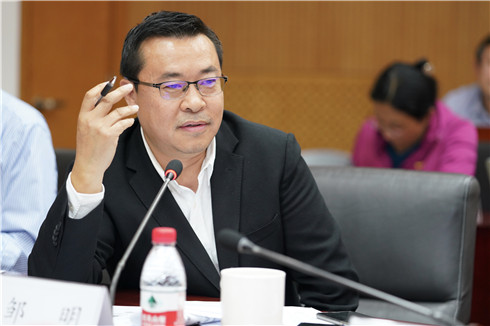
Zou Ming, Editor-in-chief of Ifeng.com, pointed out that think tanks should make national interests the starting point in their strategic communication. The media and think tanks could build a close partnership that will benefit each other. At present, what Chinese think tanks should improve is their ability of communication through comprehensive media platform. Strategic communication could help think tanks to create their own brands. In addition, the media also has its advantages in the construction of think tank of its own, in which the Ifeng has made a lot of efforts.
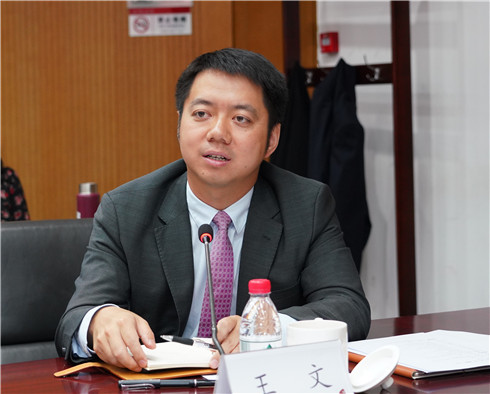
Wang Wen, Executive Dean of Chongyang Institute for Financial Studies, RUC, said that behind the China-US trade war is actually a battle of think tanks, invisible but real. The two sides compete with thoughts, supported by media, fighting for the top decision-makers to gain more voice in shaping international discourse. In the era of omnimedia, the whole media construction of Chinese think tanks has started. However, it’s still too early to tell the overall effect, and difficult to guide the public opinions by think tank itself. To build a top think tank, we must attract more top-level talents, and have tolerance for those who make a slip.
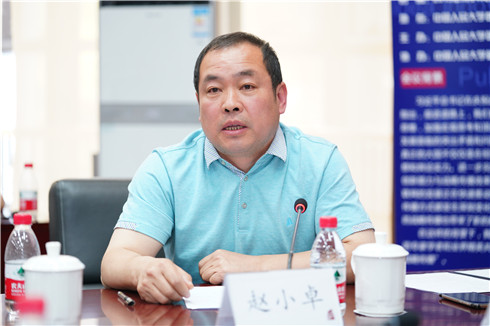
Zhao Xiaozhuo, Director of the Secretariat's Office of Beijing Xiangshan Forum, said that the communication strategies at home and abroad should differ from each other because we have different objectives and backgrounds, especially in sectors of military and national security. Therefore, think tanks and the media should enhance cooperation and exchanges, making different choice of communication content and topics for domestic and international audience.
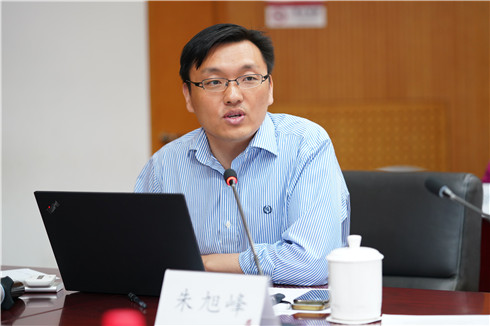
Zhu Xufeng, Deputy Dean of School of Public Policy and Management, Tsinghua University, said that the development of social media has greatly changed our communication methods, thus think tanks are now putting more manpower, resources and efforts to run their media platform. The core of communication is influence, and influence means to convince others. Therefore, one important point is Chinese think tanks must improve their capability of research and innovation so that they can truly convince the public and enhance their influence.
The National Academy of Development and Strategy was officially established in June, 2013. Renmin University of China aims to build the NADS into a top think tank by pooling together all of our intellectual resources. In December, 2015, NADS was named as one of the first batch of “China Top Think Tanks”. In 2018, NADS ranked first in the “Top 100 Chinese University Think Tanks”. The “Think Tank Development and Communication” Roundtable Forum is one of the key projects of NADS, held annually to invite scholars and experts in the circles to offer their insights of and solutions for challenges faced by Chinese think tanks.
